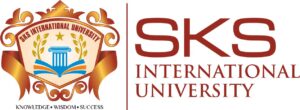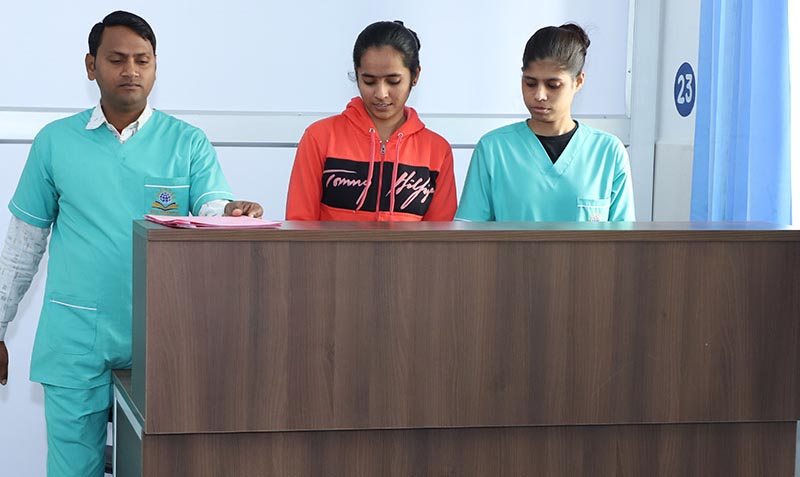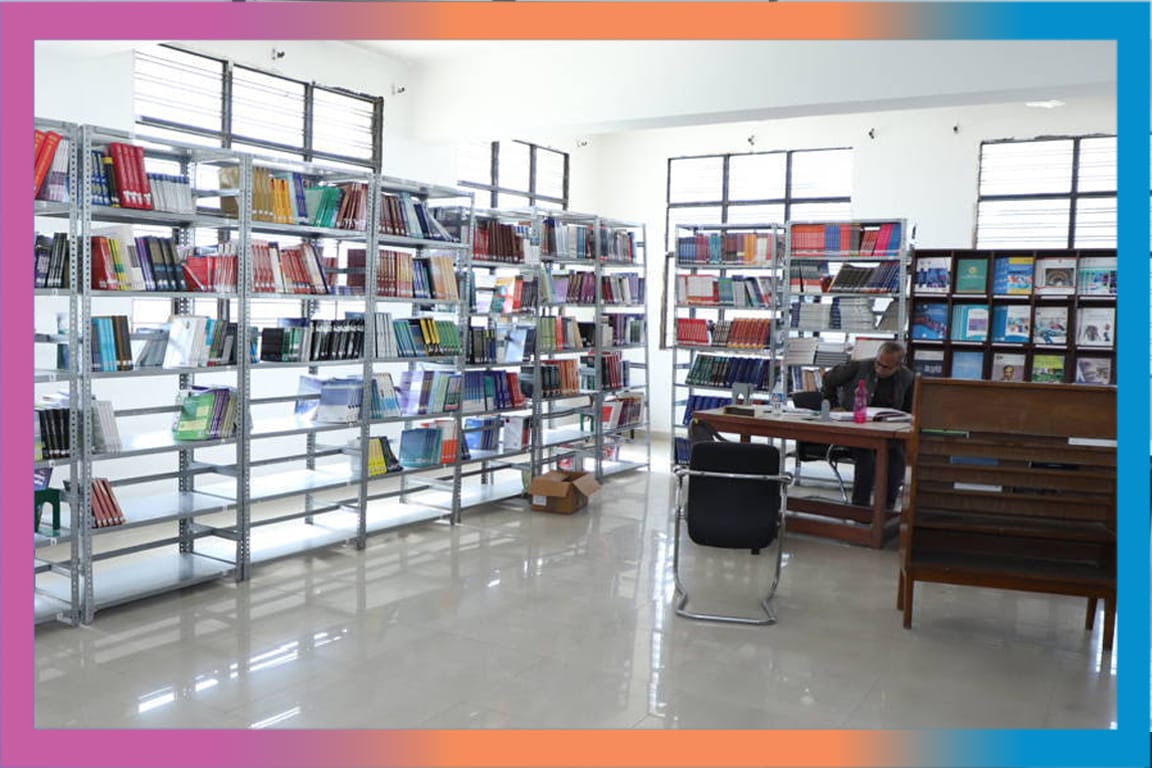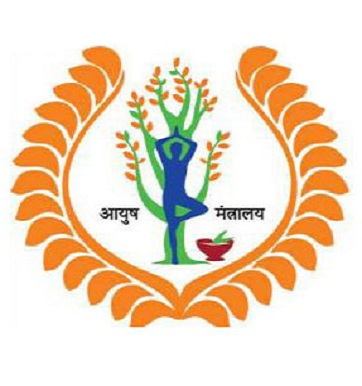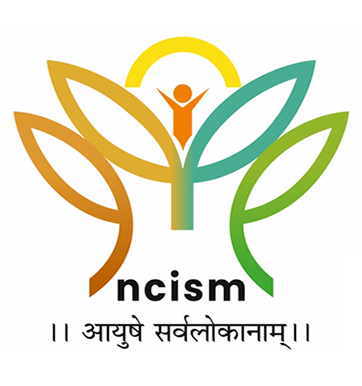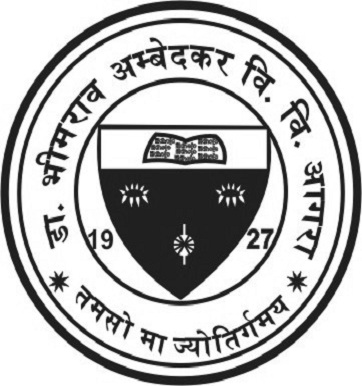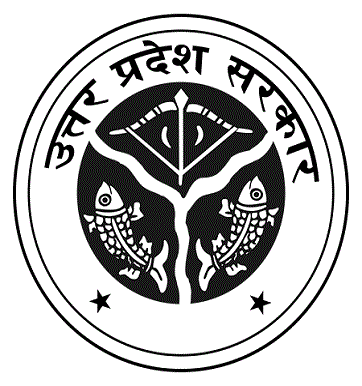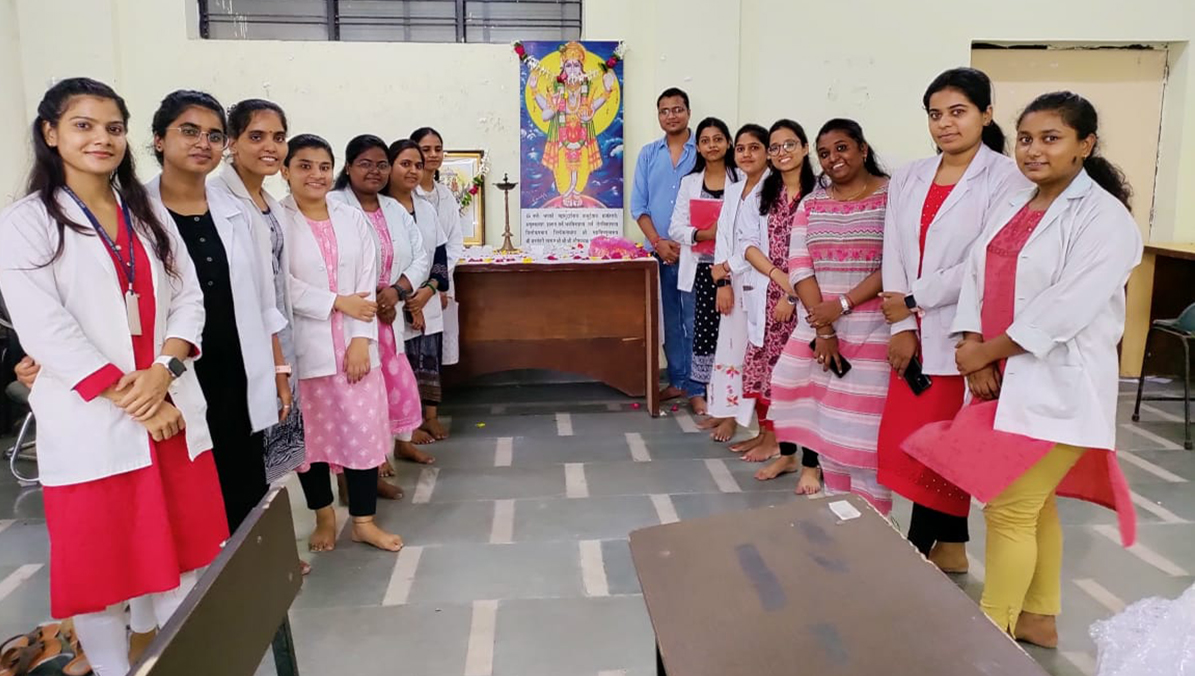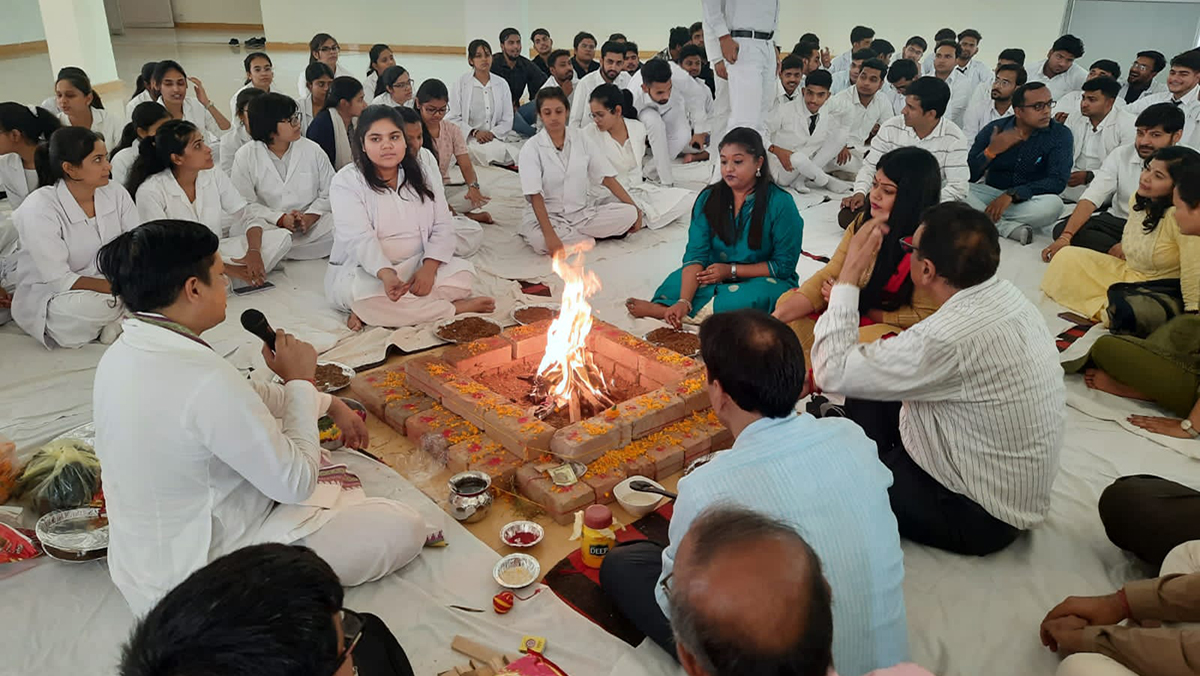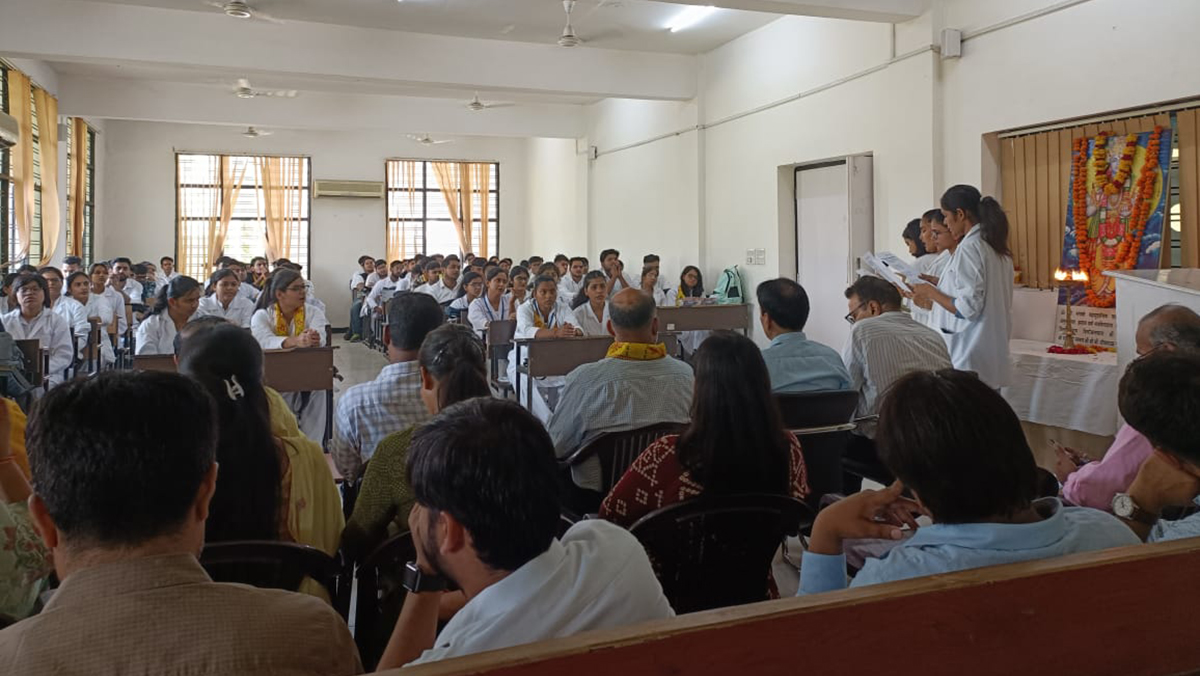- Home
- About
- Chancellor Message
- Pro Chancellor Message
- Vice-Chancellor Message
- Organization Structure
ADMINISTRATION

- Academics
- Program
- Student Corner
A Home away from Home
Student Corner
Research
Gallery
Other Links
- Campus Life
A Home away from Home
Youth Festivals & Summits
Culturally Diverse
Student-Friendly
Technology integration
- Contact Us
- Home
- About
- Academic
- College Council
- About School of Ayurveda
- Herbal Garden
- Pharmacy
- Affiliation & Approval
- Letter of Permission
- Gallery
-
Departments
- Herbal garden
- Pharmacy
- Library
- Affiliation & approval
- Letter of permission
- Gallery

HERBAL GARDEN: The Faculty of Ayurveda is maintaining an excellent herbal garden consisting of numerous medicinal plants which are used for preparing medicines. The garden is systematic and well equipped with medicinal plants labelled properly with indigenous and scientific names. The garden is looked after by gardener and trained faculty. All the plant species were authentically identified by expert taxonomists. 
HERBAL GARDEN: The Faculty of Ayurveda is maintaining an excellent herbal garden consisting of numerous medicinal plants which are used for preparing medicines. The garden is systematic and well equipped with medicinal plants labelled properly with indigenous and scientific names. The garden is looked after by gardener and trained faculty. All the plant species were authentically identified by expert taxonomists. 
College of AYURVEDA in SKS International University, Mathura provides a well-equipped library with a collection of both classic and modern works of Indian medicine. The periodical collection consists of current subscriptions on Ayurveda, nutrition, conventional medicine, journals on research and current advances in Ayurveda. During the academic year, Library is open from Monday to Saturday. Library material is readily accessible to all students, faculty and other doctors of the Institution. AFFILIATION & APPROVAL
Approved by National Commission for Indian System of Medicine (NCISM), New Delhi

AYUSH, Govt. Of India, New Delhi 
National Commission for Indian System Medicine 
Dr. B.R. Ambedkar University, Agra 
Government Of Uttar Pradesh - Hospital
- BAMS
- Admissions
- Contact
- Important Links
A
(i) The First Professional examination shall ordinarily be held and completed by the end of First professional session;
(ii)the student who failed in one or two subjects of First Professional shall be allowed to keep terms of the Second Professional session and to appear in Second Professional examination;
(iii)the student who failed in more than two subjects shall not be allowed to keep term in Second Professional session and the subsequent supplementary examination of First Professional shall be held at every six months.
B
(i) The Second Professional examination shall ordinarily be held and completed by the end of Second Professional session
(ii) the student who failed in one or two subjects of Second Professional shall be allowed to keep the term of the Third (Final) Professional session;
(iii) The student who failed in more than two subjects shall not be allowed to keep term in Third (Final) Professional session and the subsequent supplementary examinations of Second Professional shall be held every six months.
C
(i) The Third (Final) Professional examination shall ordinarily be held and completed by the end of Third (Final) Professional session.
(ii) Before appearing for Third (Final) Professional examination the students shall have to pass all the subjects of first and second professional and shall qualify nine electives.
(iii) The subsequent supplementary examination of Third (Final) professional will be held at every six months.
D
(1) To become eligible for joining the Compulsory Rotatory Internship programme, all three professional examinations shall be passed and qualified in nine electives within a period of maximum ten years from the date of admission.
Evaluation of Electives
Electives shall be evaluated in terms of attendance and assessment and on the basis of evaluation, the student shall be awarded credits as well as grades as under-
Each Elective: Five Modules of Nine Hours Each (5*9=45) | |||||
|
| Duration (Hours) | Credits | Grades | |
Sl.No. | Component | Module |
Elective |
One Credit for attending minimum of five hours of each modular programme. Maximum five credits |
Grade is awarded on the basis of average of all five modular assessments. Bronze: <25 per cent. Silver: 26-50 per cent. Gold: 51-75 per cent. Platinum: 76 per cent. & above. |
1 | Teaching | 5 | 25 | ||
2 | Guided Learning | 2 | 10 | ||
| Expert |
|
| ||
3 | Interaction/ | 1 | 5 | ||
| Reflection |
|
| ||
4 | Assessment | 1 | 5 | ||
(i) Each student shall be required to maintain minimum seventy-five percent attendance in each subject in theory (i.e., lecture hours) practical and clinicals (i.e., non-lecture hours) separately for appearing in examination.
(ii) If a student fails to appear in regular examination for cognitive reasons, he may appear in supplementary examination as regular student and his non-appearance in regular examination shall not be treated as an attempt.
(iii) Assessment.-Assessment of students shall be in the form of Formative and Summative Assessments as under-
Scheme of Assessment (Formative and Summative
Sl.No. |
Professional Course | Duration of Professional Course | ||
First Term (1-6 Months) | Second Term (7-12 Months) | Third Term (13-18 Months) | ||
1 | First Professional B.A.M.S. | 3 PA and First TT | 3 PA and Second TT | 3 PA and UE |
2 | Second Professional B.A.M.S. | 3 PA and First TT | 3 PA and Second TT | 3 PA and UE |
3 | Third Professional B.A.M.S. | 3 PA and First TT | 3 PA and Second TT | 3 PA and UE |
PA: Periodical Assessment; TT: Term Test; UE: University Examinations
The Profession wise Subjects, Number of Papers and Marks Distribution shall be as per the following tables, namely:-
Number of Papers and Marks Distribution for First Professional B.A.M.S. Subjects
Sl.No. |
Subject Name |
Papers |
Theory | Practical or Clinical Assessment | Grand Total | ||||
Practical/ Clinical | Viva | Electives | IA | Sub Total | |||||
1. | Samskritam evam Ayurved Ithihas | 2 | 200 | – | 75* | 10 (Set-FA) | 15 | 100 | 300 |
2. | PadarthaVigyan | 2 | 200 | 100 | 60 | 10 (Set-FB) | 30 | 200 | 400 |
3. | Kriya Sharira | 2 | 200 | 100 | 70 | – | 30 | 200 | 400 |
4. | Rachana Sharira | 2 | 200 | 100 | 70 | – | 30 | 200 | 400 |
5. | Samhita Adhyayan-1 | 1 | 100 | – | 75 | 10 (Set-FC) | 15 | 100 | 200 |
Grand Total | 1700 | ||||||||
*Viva voce examination shall be for Sanskrit and not for Ayurved Ithihasa
(Set-FA, FB, FC – sets of Electives for First Professional B.A.M.S.)
Number of Papers and Marks Distribution for Second Professional B.A.M.S. Subjects
Number of Papers and Marks Distribution for First Professional B.A.M.S. Subjects
Sl. No. |
Subject Code |
Papers |
Theory | Practical or Clinical Assessment | |||||
Practical/ Clinical | Viva | Elective | IA | Sub Total | Grand Total | ||||
1. | Dravyaguna Vigyan | 2 | 200 | 100 | 70 | – | 30 | 200 | 400 |
2. | Rasashastra evam Bhaishajyakalpana | 2 | 200 | 100 | 70 | – | 30 | 200 | 400 |
3. | Roga Nidan evam Vikriti Vigyan | 2 | 200 | 100 | 70 | – | 30 | 200 | 400 |
4. | Agad Tantra evam Vidhi Vaidyaka | 1 | 100 | 100 | 60 | 10 (Set-SA) | 30 | 200 | 300 |
5. | Samhita Adhyayan-2 | 1 | 100 | – | 75 | 10 (Set-SB) | 15 | 100 | 200 |
6. | Swasthavritta evam Yoga | 2 | 200 | 100 | 60 | 10 (Set-SC) | 30 | 200 | 400 |
Grand Total | 2100 | ||||||||
(Set-SA, SB, SC – sets of Electives for Second Professional B.A.M.S. Number of Papers and Marks Distribution for Third Professional B.A.M.S. Subjects)
Sl.No. |
Subject Code |
Papers |
Theory | Practical or Clinical Assessment |
Grand Total | ||||
Practical/ Clinical | Viva | Electives | IA | Sub Total |
| ||||
1 | Kayachikitsa including Manasa Roga, Rasayana and Vajikarana | 3 | 300 | 100 | 70 | – | 30 | 200 | 500 |
2 | Panchakarma & Upakarma | 1 | 100 | 100 | 70 | – | 30 | 200 | 300 |
3 | Shalya Tantra | 2 | 200 | 100 | 70 | – | 30 | 200 | 400 |
4 | Shalakya Tantra | 2 | 200 | 100 | 70 | – | 30 | 200 | 400 |
5 | Prasuti Tantra evam Stree Roga | 2 | 200 | 100 | 60 | 10 (Set-TA) | 30 | 200 | 400 |
6 | Kaumarabhritya | 1 | 100 | 100 | 60 | 10 (Set-TB) | 30 | 200 | 300 |
7 | Samhita Adhyayan-3 | 1 | 100 | – | 75 | 10 (Set-TC) | 15 | 100 | 200 |
8 | Atyaikachikitsa | 1 | 50 | – | – | – | – | – | 50 |
Grand Total | 2550 | ||||||||
(Set-TA, TB, TC – sets of Electives for Third Professional B.A.M.S.)
